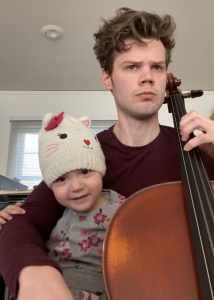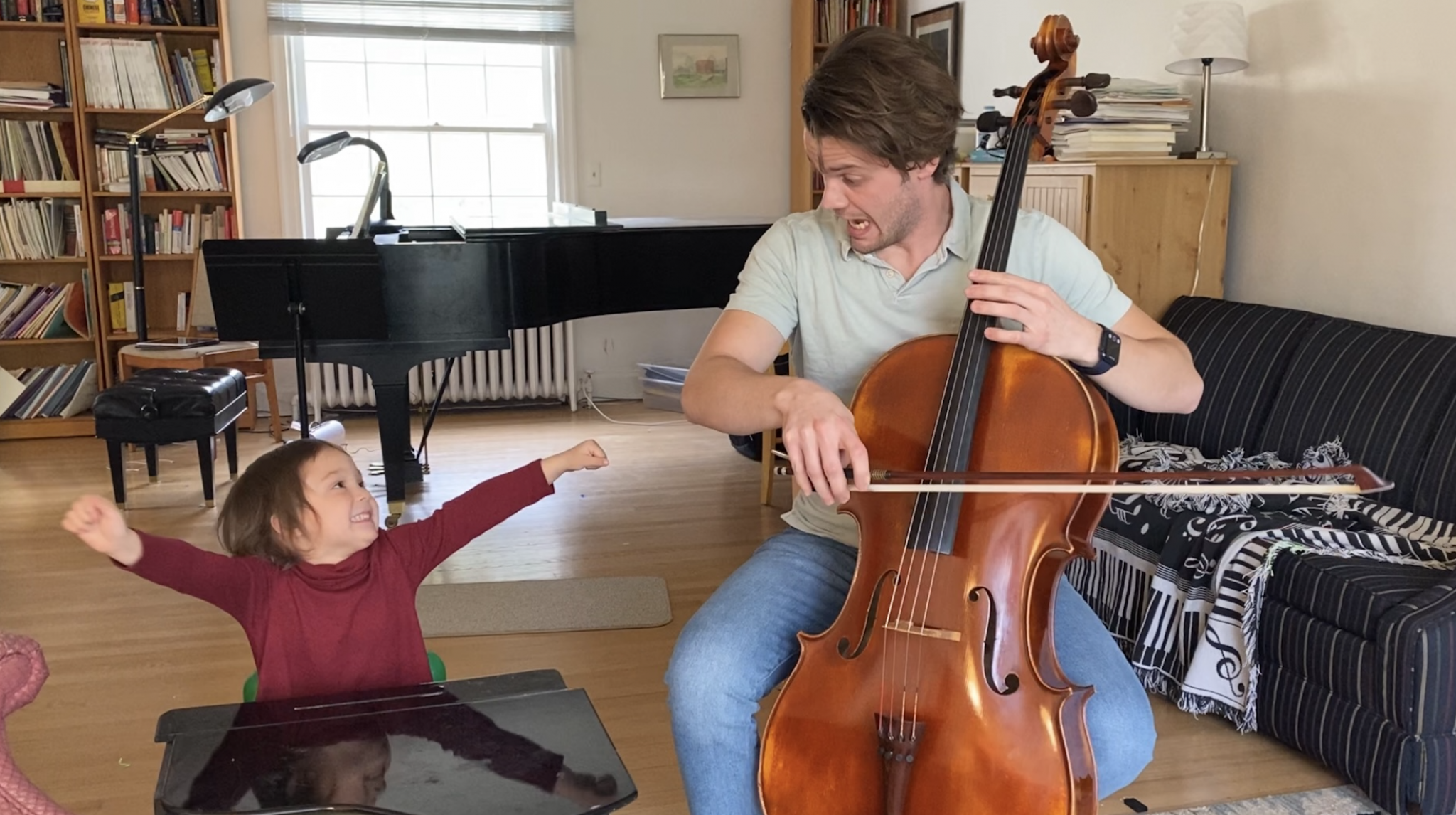How To Raise A Young Musician
Words by Crystal Hammon
Imagine a contest that ranks the most commonly shared childhood experiences. A few rites of passage would quickly rise to the top. Taking the training wheels off your bike, dreaming that you’ve gone to school in your underwear, deciding that you want to learn a musical instrument—and then changing your mind when you discover how difficult it is.
Fast forward to your role as a parent, and the common ground may come in the form of a shared dilemma: What should you do when your child wants to quit taking music lessons?
Even for professional musicians like Warren Oja, a Chicago freelance cellist who trains kids to play string instruments, music lessons weren’t always fun. It wasn’t that he didn’t want to play. “There were just other things I wanted to try besides music,” he says.
Oja chose to stick with music, but he admits that he may have abandoned ship if his mother hadn’t pushed him. He went on to complete a bachelor’s degree in cello performance at Western Michigan University and now has a private teaching practice with roughly 20 students of all ages.
In hindsight, Oja says there were better ways to become a musician. It’s taken years to unlearn a process that was based on avoiding failure. “My [internal] motivation was like, ‘You want to keep working on this because you don’t want to be a loser, a lazy kid who is homeless with no prospect of earning any future wages,” he says. “I feel there’s a deeply engrained culture in the music education system that encourages students to be motivated by their imperfections rather than their strengths,” he says.
Learning to play an instrument pays emotional dividends.
Oja’s teaching practice reflects his view that music lessons should build emotional intelligence and resilience in children. At a bare minimum, music gives children ways to process emotions when words fail. “I think there are a lot of ways music lessons can be really good for a child as a whole person,” he says. “But the music teacher has to be working at it from that angle, too. Some teachers will teach kids how to play an instrument. I don’t think that’s going to be good enough if you really want your kids to be a fantastic musician. You’re also trying to teach them how to be good human beings.”
It can take up to three years of practice and study to produce a decent sound in a cello or a violin. That’s true of children and adults. In the interim, students must be motivated by curiosity about how to produce the sounds an advanced musician can make. When students get frustrated with the learning process, Oja encourages them to step back, be compassionate with themselves and recognize that frustration is a natural response to learning a complex instrument. “I think a lot of kids are kind of abusive by the stories they tell themselves,” he says. “I try to say ‘Treat yourself the way you would want to be treated by someone else.’”

With his own children, Oja employs music as a form of play and an emotional balm that helps them cope with life. On any given day, 40,000 followers have a window on the stars of his Instagram feed, four-year old twin daughters, Heather and Iris. They dance with joy, improvise back and forth with their dad on their toy instruments, or climb onto his lap while he practices for a gig.
“I wish I could tell you there was a method to the madness,” he says. “It’s just very easy for me to get them excited about [music] because they see it’s what I’m doing. They hear me practice all the time. Because of that, they can identify and request repertoire that I am practicing, making me like their cello jukebox.”
Listen and encourage—never punish.
Whether Heather and Iris become musicians or not, Oja says they are getting the most valuable musical education they can have by learning songs and singing songs. “They’re developing their ear, which is the most important thing for any musician,” he says. “If there’s a particular type of music that you want your kids to learn or appreciate, I think listening is the first step.”
Oja and his wife will let their kids decide when and whether they want to play music, and if so, what instrument it will be. He hopes they will never feel forced. “Even if they decide they want nothing to do with music, I’m going to listen to and consider that,” he says.
When children are ready to start learning a musical instrument, Oja suggests that parents ask them to commit to the instrument for at least a year. An advance commitment sets kids up to receive long-term benefits they may be too young to picture.
Rather than punishing kids, or using scare tactics when their commitment wanes, he suggests that parents make supportive statements such as, I think this will be something that you’ll be happy that you worked for in the future. “The most important thing is to make sure you are connecting with them and showing them that the way they feel matters to you, and that you want to help them feel better about things.”
Follow Warren Oja’s Instagram feed @warrenoja.







Leave a Reply